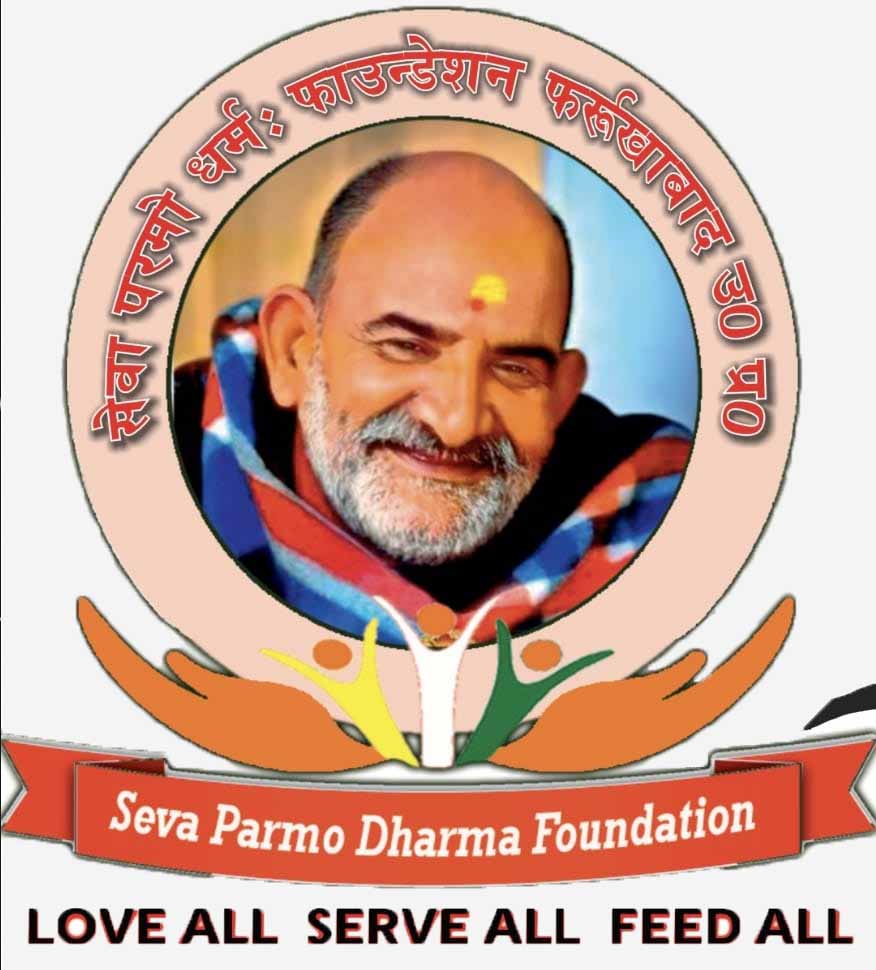A young fellow once came and Maharaji asked him how he was, and he said, “Oh, Maharaji, I’ve overcome anger.” Maharaji said, “Oh, very good!” and kept praising him.
At the time, there was another fellow present who had been asking Maharaji for many years to come to his house, but Maharaji had never come because the boy’s father didn’t believe in sadhus or saints. But now Maharaji turned to this boy and said, “Do you still want me to come to your house?” The boy said, “Yes, but let me arrange it with my father.” Maharaji said, “Go and then we will all come.” The visit would mean, of course, that the place of honor in the house would be given to Maharaji so the father would have to sit someplace else.
Finally, the whole party went and Maharaji sat on the tucket belonging to the boy’s father. Then Maharaji leaned over and looked the father in the eye and said, “You’re a great saint.” But in Hindi he used the very personal form, which you use only with very intimate friends and to people in the lower caste. So it was really an insult to use that form to the old father. The old man got upset but held himself together. A little time passed and Maharaji leaned over again and said, “You’re a great saint.” By this time the father’s face got red and he was getting worked up, but he still kept control. A few minutes more went by and Maharaji leaned over and said the same thing again. This time the father completely lost it. He got up and started screaming at Maharaji, “You’re no saint, you just come in and eat people’s food, you take their beds, and you’re a phony.”
At this point the young fellow who had overcome anger leaped to his feet, grabbed the father by the collar, and started shaking him, saying, “Shut up, you don’t know who you’re talking to. He’s a great saint; if you don’t shut up I’ll kill you.”
At this point Maharaji got up, looked around bewildered, and said, “What’s the matter, what’s the matter, don’t they want me here? We should go – they don’t want me here.” So he got up and started walking out, and he turned to the young fellow as he was going out and said, “It’s very difficult to overcome anger. Some of the greatest saints don’t overcome anger.” The fellow said, “But Maharaji, he was abusing you.”
“That’s right, he was abusing me. Why were you angry?”
– Excerpt from Miracle of Love: Stories about Neem Karoli Baba
Changing Hearts
One night Shrimati Kamla Pande had a dream in which she saw Maharaji sitting on a takhat in the front room of a house on the roadside. He was looking outside through the door, and some young men were passing by singing obscene film songs. Kamla ji, Sri Ma, and Sri Jivanti Ma were also in the room and appeared disturbed by the young men’s indecent behavior before Maharaji. Next she saw that Baba called those young men and asked them to sing a song. They came and sang many devotional songs of Kabir, Mira, and other saints. Baba said to them, “I called you to sing the same songs that you were singing in the street.” They appeared ashamed and joining their hands in respect said, “Baba, we have forgotten those songs and we know only these devotional songs.” Baba turned his face towards Shrimati Kamla and whispered in her ear, “I do not know anything. I just know how to change hearts.”
– From The Divine Reality of Sri Baba Neeb Karori Ji Maharaj by Ravi Prakash Pande “Rajida”
A Price For Compassion
One morning Babaji was in his small room in Kainchi. A sadhu with a half-dozen of his disciples came for Baba’s darshan. I took them to his room. After they had taken their seat, Babaji said, “This is Mahant Digvijaynath, a great saint. Bow at his feet.” When another person came, Babaji made him bow as well. Babaji smiled and asked people to bow low to the saint instead of touching his own feet. But when the third one came and Babaji repeated his words, the Mahant stood up and clasping Babaji’s feet, with tears in his eyes, said, “Baba, you are the saint of saints sitting before us, and you are making people touch my feet, taking me to be a saint.”
“A saint can be known only by one who himself is a saint.” That is what has been said by the wise. So we cannot have – at least speaking for myself – any pretension of knowing Babaji, the great saint. In the Bhagavad-Gita we learn that a saint is a person with a dual personality – the divine and the human. Many of us have seen the human person in Babaji, but that doesn’t mean that we can claim to have seen the divine person in him.
In a saint, the divine person is encased in the human frame but is not entirely identical. The bottom of the human and the top of the divine stand far apart from each other. There is a co-mingling in the inner space, and in noble human beings, some of the divine qualities merge entirely with their human qualities, destroying all distinction between human and divine. I am saying this about Baba from my own experience of him- I have never seeing him wearing his divine crown, but I have always seen his divine qualities of love and compassion. He was always ready and alert to mitigate the sufferings of the helpless by taking their pains upon himself. His body became a honeycomb of diseases. This was the price he had to pay for his compassion and his readiness to help.
– Dada Mukerjee


Leave a Reply